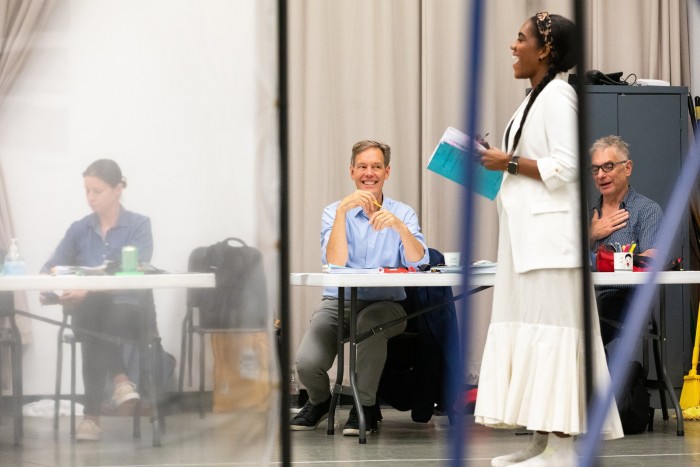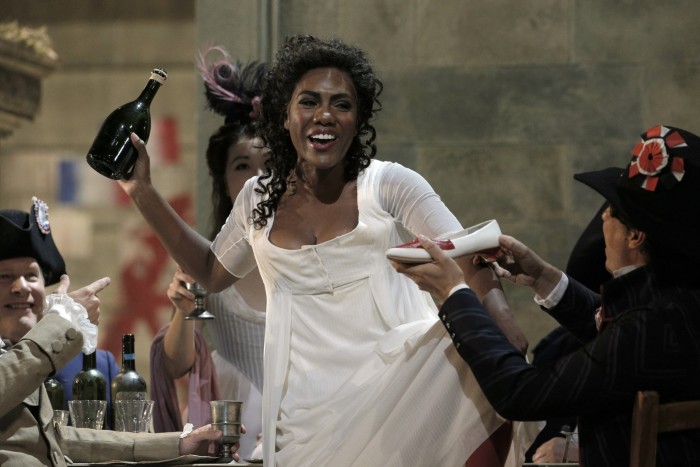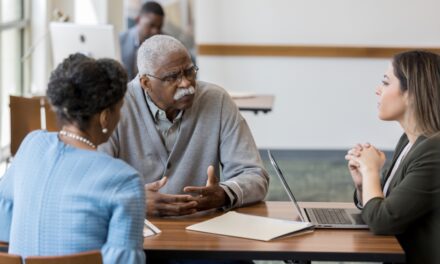Unlock the Editor’s Digest for free
Roula Khalaf, Editor of the FT, selects her favourite stories in this weekly newsletter.
How a single incident can change a life. J’Nai Bridges looked set to become a professional basketball player when a relatively minor falling-out with her coach led her to change course completely and pursue her other big interest. She decided to be an opera singer.
A shared prowess in sport and opera singing is more common than it may seem. Both involve strength and stamina, both mental and physical, as the 36-year-old American says, reflecting on her early years.
“I always like to say that opera singers are athletes. Using your whole body to project your voice unamplified to thousands of people takes the same strength and endurance as in basketball, and you also need the same lack of tension,” she says when we speak on Zoom. “I like to draw a parallel between singing and tennis: the swing and body motion in tennis is the inhalation and preparation for the breath in singing, and then the follow-through of the racket is the air that you have set up properly. Whenever I speak to young singers, I talk about strength and health. We are athletes, and if we get sick, we get down.”
Bridges will certainly benefit from stamina as she embarks on a busy 2023-24 season. Three major American works — Jake Heggie’s new opera Intelligence, Julia Perry’s Stabat Mater and John Adams’ El Niño — stand out in a packed schedule.

So soon after Heggie’s Dead Man Walking has opened the season at the Metropolitan Opera, New York, the premiere of his latest opera is eagerly awaited in Houston. Bridges is in the second week of rehearsals and, like so many singers, describes Heggie as “a dream — a living composer who knows how to write for the voice”.
The opera is set during the American civil war and tells a story based on true events of two women running a pro-Union spy ring in the Confederate White House. Bridges will play the ghost of Lucinda, an enslaved woman who was killed and had her child, the opera’s protagonist (played by Janai Brugger), torn from her.
The role is, she says, “very intense” and has a special resonance for her. “There is so much in this country that is unhealed when it comes to its past and slavery, even where we are now politically. I grew up with some of the phrases written in the libretto. My grandmothers used to say the exact words, like: ‘You are here to tell the whole story so that we are not forgotten.’ At the end, Janai Brugger and I looked at each other because for us this was more than a scene in an opera. It is something we feel as black American women.”
The other two American works in her schedule add up to a complementary trio. In Adams’ nativity opera-oratorio El Niño, Bridges takes on the role originally sung by the much-missed Lorraine Hunt Lieberson. The work will be getting its first fully staged production later in the season at the Metropolitan Opera.
The third is Stabat Mater, the best-known work by Perry, an African-American composer working in the mid-20th century, who was highly regarded in her day but is now almost forgotten. Bridges, who will sing it for her New York Philharmonic debut, says: “I am a champion specifically of black women composers and being the vessel to promote music that is so rarely performed.”
All this has taken her a long way from Tacoma, Washington, where she grew up. She started singing in the gospel church and, once the basketball dream had been shelved, went on to the Curtis Institute of Music and Manhattan School of Music.

A rich mezzo voice, wide vocal range and flair on stage marked her out at an early stage as a singer headed for the top flight (for vocal beauty watch her on YouTube performing Peter Lieberson’s Neruda Songs in Los Angeles). She already has debuts at the Metropolitan Opera, Lyric Opera of Chicago, San Francisco Opera and Dutch National Opera, among others, behind her.
The people who have inspired Bridges include some admired from afar, such as former first lady Michelle Obama, and friends such as writer Maya Angelou. One name, though, comes at the top of the list.
“Jessye Norman was one of the first opera singers I heard,” she says. “I thought: ‘What is this wall of beautiful sound — is she a soprano, a mezzo, or an alto?’ At former President Obama’s inauguration I was asked to be in the choir for one of the events. None of us knew until the last minute that Jessye Norman would be singing and I was very shy, but my mother went with me to her and I asked if she had any advice to give an aspiring opera singer. She said: ‘Learn your languages and sing from your soul.’ It was some of the best advice.” Though she adds: “My languages still need some work.”
Bridges exhibits an enthusiasm for opera in all languages and styles. Roles such as Bizet’s Carmen and Saint-Saëns’s Dalila continue to fire her interest, the latter part of a general love for French grand opera. Amneris in Verdi’s Aida remains a long-term ambition.
On the other hand, the importance of the many contemporary American operas, she says, is that they bring in a new audience. “Historically, opera in the US has been different from in Europe. There is a specific kind of person who goes to the opera, predominantly older and white, but now that is changing dramatically. There is a new audience that is both young and old and of all races. People want to see themselves and their stories on stage and these new works help them identify with opera more readily. You really can get to hearts and souls.”
‘Intelligence’ premieres at Houston Grand Opera on October 20, houstongrandopera.org
‘Stabat Mater’ is at David Geffen Hall, New York, on November 22, 24 and 25, nyphil.org
‘El Niño’ opens at the Metropolitan Opera, New York, on April 23, metopera.org




